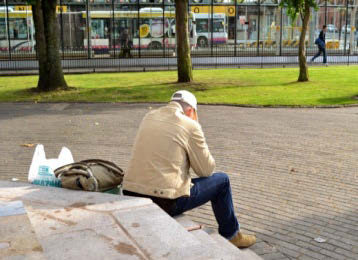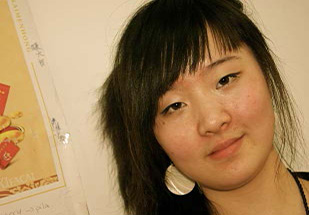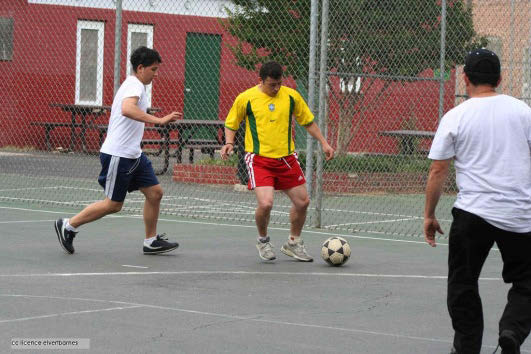Introduction
The overarching aim of working with refugees and migrants should be to empower people so that they are able to rebuild shattered lives and shattered communities, reversing the disempowerment caused by forced exile, and building on the innate resilience and resourcefulness of refugees.
“The miserable have no other medicine, but only hope”
William Shakespeare, Measure for Measure III.I.2-3
Claudio’s words from Measure for Measure are echoed by Dr. Pat Bracken, consultant psychiatrist with many years of working with refugees, when he says that:
“Trust, hope and a purpose in life are the best antidepressants”
Bracken 2004
This is an introductory unit aimed at familiarising the practitioner with the wider issues which can affect migrant health.
The Wider Social Determinants of Health
 In order to understand the wider determinants of health, the factors which promote wellbeing and those which hinder it, it is necessary to know something about the lives and life experiences of those we work with.
In order to understand the wider determinants of health, the factors which promote wellbeing and those which hinder it, it is necessary to know something about the lives and life experiences of those we work with.
The lives of refugees, and the most vulnerable migrants, are very different in many ways from those of the indigenous population of the UK.
This training aims to help you to understand a little about the lives of migrants to the UK, and through this knowledge to understand the wider determinants of health for this group of people, and consider ways in which to address factors which inhibit healthy lives.
Empowered people tend to make healthier choices.
The following sections highlight key social factors which impact the health and well-being of refugees and migrants.
Isolation and loneliness
The effect of loneliness on health and wellbeing can be as damaging as smoking (Holt-Lunstad, et al., 2015), and the loneliness of migrants can be profound.
|
Suffering |
Suffering in the country of origin was often bearable because it was the result of deeply held beliefs which gave meaning to the suffering, but which are meaningless in the host country. (Gorst-Unsworth and Goldenberg, 1998) |
|
Isolation |
Human beings are not designed to live in isolation, which in the case of a migrant is an artificial state created by circumstances, not choice. |
|
Social support |
Social support is recognised as providing considerable protection against stress, and an individual with an extensive social network will be better able to find solutions to the many practical problems of life in an unfamiliar culture. |
|
Social networks |
An individual with a wide social network will be better able to find solutions to the many practical problems which beset him or her. A wide social network leads to feelings of empowerment which increase an individual’s ability to cope with the complexities of life in the UK. |
“We are like sisters now. Now we can help other people who are going through this nightmare.”
Ugandan woman, speaking about
experiences after participating in a dance group
Racism and hostility
Hostile public attitudes to migrants can have a negative effect on health.
“Being despised is bad for your mental health”
Man from Zimbabwe
Newspaper and the media can have a direct influence on public perceptions of migrants – and these effects can be felt as soon as a person steps outside their front door, on the school playground, local supermarket
Imagine these actual headlines were written about you…..
Immigrants are flooding into the UK
UK is a soft touch
Coming for state handouts
Jumping the queue for housing
Terrorists and criminals
They are a drain on the country
Poverty
 The adverse effects of poverty on health were explored in the Acheson report (1998), the Marmot Review (2010) and its follow up report, Marmot - 10 years on. Click the links for web-based resources or see the Resources section in the toolkit for the Marmot Report.
The adverse effects of poverty on health were explored in the Acheson report (1998), the Marmot Review (2010) and its follow up report, Marmot - 10 years on. Click the links for web-based resources or see the Resources section in the toolkit for the Marmot Report.
Not all migrants are poor – many wealthy business men and women travel and stay in the UK, professional footballers, musicians and academics are allowed to work here too.
However, the majority of migrants are students, or in low-paid employment, additionally some like people seeking asylum are not allowed to work. People who have had their application for asylum refused may also remain here with “No recourse to Public Funds” and without the right to work – people in this situation are often called “destitute asylum seekers”
Many migrants can experience profound feelings of sadness, loss of self-esteem and depression as they are trapped in low paid work or are displaced downwards in the labour market as their qualifications, professional experience or standing are not recognised in the UK.
Boredom and purposelessness
Asylum seekers are not allowed to work while their claim is being processed. For people who wish to contribute to society, and to fend for themselves in the world, this can be a crushing blow to self-esteem.
The education level of refugees and economic migrants is often higher than employment or non-employment suggests. Many migrants work in low-paid, low-status jobs that do not reflect their careers at home.
Lives lived in the UK can be utterly different from the life back home.
”I worked with a Kurdish man from Iraq who lived in a flat on the 9th floor of a local tower block.
He complained that he had lost weight, and this was apparent in the fact that his trousers were far too big for him and pinched in at the waist with a belt. He looked thin. I asked him about his life in the UK and his life back home.
In the UK he usually ate only one meal a day; in Iraq, three or four.
Back home the food was cooked by the women of the family; now he had to cook, inexpertly, for himself.
In Iraq meals involved the whole extended family; here, he ate alone.
His life had been full – he was a shepherd, rising at dawn to tend the sheep and going to bed with the sun; here he had difficulty sleeping, went to bed very late and rose late, and his days were empty and purposeless."
CM Health Visitor, Salford.
Issues of loss
The massive social loss of all that is familiar has been described by Eisenbruch as ‘social bereavement’. A Spanish writer, Achotegui, describes the ‘Ulysses syndrome’, a hinterland between mental health and mental illness, and lists seven ‘griefs’ of exile:
- Family and loved ones: Family ties tend to be very strong, and sadly grieved for
- Language: Being able to make oneself understood effortlessly. Not understanding the language spoken around you can be very frightening.
- Culture: A society which works in a way that you understand without thinking about it. Nuances which are unconsciously familiar and shared with those around you. Knowing how to get a bus to stop for you, where to get books you can read
- Land: The climate, vegetation, landscape, architecture, your own home. Image how it must feel to come to northwest England from Equatorial Africa in February.
- Social status: Respect in the eyes of others. You were somebody, with talents, abilities, skills. Everyone around you knew what you were good at. Now you are a disregarded nobody.
- Contact with peer group: Your friends are back home - you don’t know anyone here. No-one to chat with, laugh with, cry with, run with, play football with, knit with, share child-care with.
- Physical risks: The journey may have been hazardous.
All migrants, even those who are free to return to their home country, feel this to some extent. Refugees and asylum seekers, who may never be able to return, are the people who are most affected.
Working conditions
Migrant workers often do the work which the indigenous population of the UK do not choose to do.
Pay and conditions may be extremely poor, with little job security or health and safety considerations.
Expectations of a better life may not be fulfilled, leading to feelings of low self-esteem.
The Joseph Rowntree Foundation has researched the impact of poor working conditions for European migrants here in the UK. They concluded that:
“Migrants’ experiences at work, including low pay and long working hours, had a significant impact on their lives beyond the workplace”
The experiences of Central and East European migrants in the UK. (Spencer, Ruhs, Anderson, Rogaly) JRF (May 2007)
The Migrant Rights Network published a report from Dr. Bin Wu at the University of Nottingham examining the working conditions of Chinese migrant workers in the Midlands. It concluded:
“Poor working conditions do not merely mean long working hours and low pay, but also a lack of appreciation for their hard work and respect for their basic human dignity. Many suffer from deteriorating health and report feeling depression and a sense of hopelessness.”
Well-being quiz
Read the statements below and select true or false for each.
Q1. NHS staff can address all the determinants of health
TRUE
FALSE
Q2. NHS staff can address none of the determinants of health
TRUE
FALSE
Q3. Football is a good way of getting people together
TRUE
FALSE
Q4. Community venues are best for events, meetings or health and well-being projects
TRUE
FALSE
Q5. Activities will be most successful if they are discussed and planned with participants or the community beforehand
TRUE
FALSE
Q6. Any time of day will be suitable for a community health event
TRUE
FALSE
Q7. Swimming is a great way of keeping physically and mentally fit - it suits everyone
TRUE
FALSE
So what can health care professionals do?
So what can health care professionals do to alleviate these problems?
Addressing many of the wider determinants of health is outside the scope of the NHS. You can do nothing about what has happened and is happening in the country of origin, and little, at least in the short term, about conditions in the UK.
However, health professionals can attempt to address some of the wider determinants:
 So…
So…
- This is an opportunity to develop new initiatives in health promotion. Measures which address social isolation are arguably more important than smoking cessation and healthy eating
- A community development approach is probably more important than the medical model of health, and involving faith groups and third sector organisations works particularly well with migrant communities
- Work with Third sector groups. They have the trust of marginalised communities, and can build bridges between potential service users and service providers
- The nature of the activity does not particularly matter. The aim is to get people together to build social capital and social support, and the activity is just a means to an end. It could be an existing activity such as a swimming group, or you could work with the local authority to develop a football team
- Advocacy is a valid role for health practitioners as well as improving care and conditions, it builds trust.
“The team has been very good for me over the last few years. I have increased my fitness and made lots and lots of new friends. The team helps each other and we all support each other through bad times. My life would be very different without this project.”
20 year old male refugee, International Manchester Football project.
Summary
- The stressors which migration puts on health are many and various.
- Stressors will vary with the reason for migration, but are an inevitable component of the loss of the familiar.
- Most migrants are adaptable and resilient, and will find their way in the new society; however, for some the stresses of migration, and particularly if it is forced migration, will prove too much, and will compromise their health.
- A community development approach which builds social capital and self-esteem is probably the best way of addressing the wider determinants of health and well-being for refugees and migrants.
